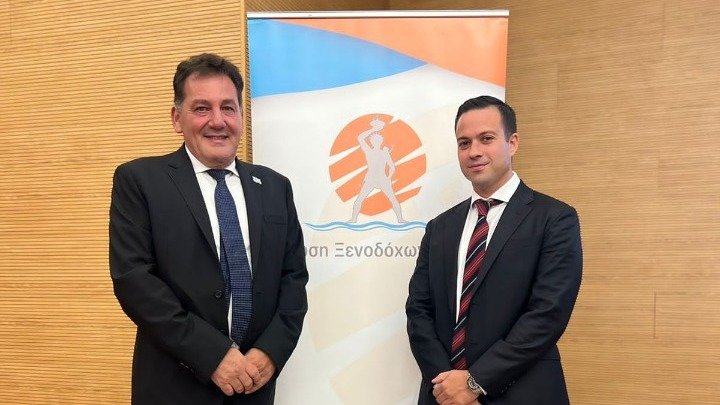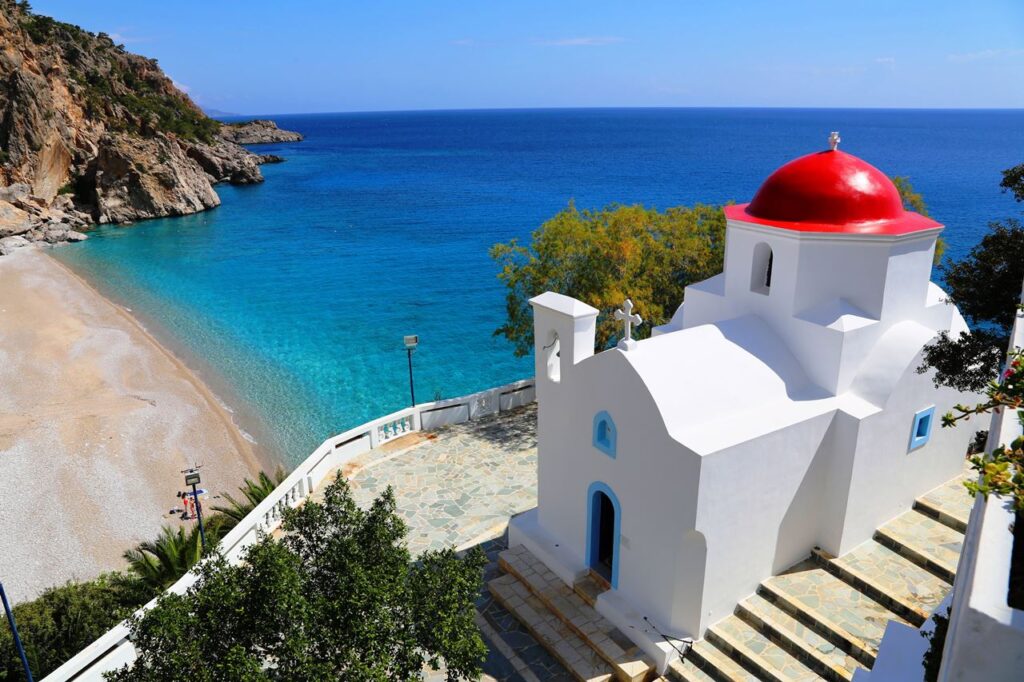Dear readers, today in my photo column, the photographer who captures the real moments of Thessaloniki through his lens, Yannis Markantonis, is presented!
By looking at the works of a photographer, we can certainly understand the way he sees events and situations, but at the same time we can gather a lot of information about the events he describes or records.
Giannis Markantonis lives and works in Thessaloniki. He is an interesting person with a kind profile and a positive aura. As a photographer, I would rather describe him as a “hunter” of moments and in fact, those moments that release real emotions far from a photo made of quotes (set up) as said of photographers in our language. Each click gives the viewer the feeling that he is part of the image.
I happened to meet Yiannis at the international photography exhibition organized last May in the co-capital of STREETSHOOTERS, where I participated as a creator as well as a speaker. More than his character, I was won over by the way he moves in space as a photographer, with calm but precise movements he expresses the atmosphere of the specific event as if in contact with real life. Therefore, I decided to propose an interview with him because I believe he has enough to give to the photographers who follow us.
Let’s meet him and read what he tells us.
1) John, how would you describe yourself first as a photographer and then as a character?
It’s true that I have a hard time talking about myself. As a photographer I am a perfectionist, I don’t want to leave anything to chance. I study my goals in advance and I want to present the best results. As a character, I am open, I love people very much and I enjoy socializing. I am impulsive and passionate about what I do.
2) What was the stimulus you received to start your journey in the art of photography?
I always considered photography to be an expensive hobby and especially during the film era, I thought I couldn’t do it because I didn’t have enough money. Entering the digital age and because of my experience with computers I found myself first in the field of image processing and then photography. Before my son was born, I bought my first camera. I want to capture the moments of the child and his development. From a simple pocket camera I quickly found myself in DSLRs.
3) What field do you specialize in? Where do you get inspiration for taking photos?
I have always considered that the cultural aspect of the area should have a better perspective. So I started covering cultural events. Through the cultural ones I also started to make pictures. I prefer people, ordinary people at their work, the shoemaker, the blacksmith, the blacksmith, the housewife who cooks or makes sweets, the old people who rest in the afternoon outside the houses.
I also love the traditional architecture, the old buildings, the wooden doors, the handmade handles, the clay, the handmade tools, all the details of everything traditional.
Nature and animals also have a place in my photos. But my great passion is street photography. It’s something very special, it can’t be set up, you can try for days and not get anything useful, but if you succeed it’s something more magical.
4) Have you participated in a group or individual photo exhibition? If so, I would like you to tell me about the experience you received and tell us what benefits a photographer can get by participating in these types of events?
Photo exhibitions are a great celebration, they are an opportunity to meet people with the same passion. Promote your work and development. To present your work to a wider audience. See if there is interest in buying your photos. To be recognized by professionals in the field, colleagues and interested parties.
I have participated in many group exhibitions
5) What is your opinion on the subject of study or the self-taught course of a photographer. Do you think it is important for someone who wants to pursue photography professionally or as an amateur to study photography?
Nowadays there is incredible media and you can find everything on the internet, but I think each option has its advantages and disadvantages.
If you study photography, you probably have professional goals, so you can get deep knowledge, professional skills, network with a large network of teachers, professors and classmates, and by getting the degree you get a certification which is necessary in some branches of photography.
Studies, of course, have costs and long durations that can be negative for some.
If you are self-taught, you may be interested in photography as a hobby. You don’t need to learn all the techniques, only the ones that interest you, so you can save time and almost immediately present a job, a job with a personal style and few rules.
Many times, however, when you act alone and especially at the beginning of the course, you “chasing your tail”, that is, you go around without managing progress.
6) I want you to tell me a story behind an important “click” of yours
Every click is important to me, and what excites me is that a stranger I photographed found his photo.
7) Do you think the quality level of photography in our country is high?
Photography in Greece has a rich history and actively participates in cultural dialogue. Many photographers, both professional and amateur, have contributed to the development of the art of photography in the country. There are many Greek photographers who produce great works, participate in exhibitions abroad, win prizes in international competitions or work in international agencies.
In addition, with globalization, Greek photographers have access to all advanced equipment and lack nothing from a photographer living in America or France.
I think that Greek photography is always developing and inspiring photographers from all over the world.
8) How do you think the people in the picture look? Do you think in our country the photographer and his works are appreciated in the world?
Each of us, depending on our personal experience and aesthetics, has a different view of photography.
As with other art forms, it was difficult to establish oneself in Greek society. To get appreciation it takes a lot of effort that has nothing to do with the will and the heart.
But there are acclaimed photographers and praise has nothing to do with social media.
9) Do you think the introduction of AI (artificial intelligence) programs in the world of photography will have a positive or negative result?
I am a technology person and I believe that technology can bring more positive results, such as reducing errors, faster decisions and saving time.
On the negative side, we are now recording the risk of replacing the creative role of man by machines as well as the loss of the personal and the real.
I think that apart from the chaos that exists today, art will find its way and photography has nothing to fear from that.
10) What advice do you have for young people who want to start their journey in photography? What should they look for and what qualifications do they need?
To the new guys who want to start their photography journey, I would like to say: Learn the basics of photography, focus, lighting and framing. Take photos as often as you can! Practice improves your skills. Focus on what you want and what motivates you. Find your own way of expression and enjoy the process.
Learn the History of Photography, learn about the great photographers of the past. Get inspired by them, look at the photos of other artists photographers and painters and find inspiration. Work with your imagination, try other angles and perspectives.
Join communities, photo groups, events. Sharing ideas and collaborating with other photographers is invaluable.
The journey into photography is a constant exploration. Enjoy it and let your imagination guide you!
In Athens, the job market in the photography industry presents various opportunities. There are positions for photographers in various fields such as tourist photography in hotel resorts, product photography for online stores, events, fashion, travel destinations, vacation rentals, hotels and the most difficult of all I think is wedding photography.
13) What are your future plans in the art of photography?
I hope to continue to heal, to have more time to take pictures. To study and develop editing and travel photography.
By reading the interview, one can get important information about how a photographer can take the right and safe steps, in the job market and in the field of photography. It is very important to follow and analyze the work and behavior of photographers because that is the only way we can improve. I sincerely thank Yiannis Markantonis for honoring me with his presence in my photo column and I keep his personal comment “today in Thessaloniki, my Christos, you have another friend”.
Now also Yannis Markantonis has a fan and friend in Athens. We are renewing our online appointment, here at planetawebradio.gr, next Saturday, with a new cool photo tour. Until then, stay tuned to the city’s #1 internet station, Planetwebradio.gr

